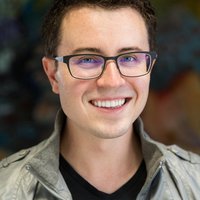Although artificial intelligence (AI) is revolutionizing fields such as autonomous driving and medical diagnosis, it is still far from perfect. The slightest mistake or unforeseen event can lead to fatal accidents. Therefore, one of the duties of researchers is to improve deep learning in order for machines to be able to predict when they are about to make a mistake.
Yarin Gal is a pioneer in a field known as Bayesian deep learning (BDL), which develops tools to quantify uncertainty in artificial intelligence. The young innovator says, "I am personally satisfied when theoretical knowledge is applied to the real world, especially when it has far-reaching implications and helps save human lives." Many research papers have already shown that BDL is crucial for applications that include medical scanners, robotics, science, autonomous driving, and more. Gal, a researcher and professor at Oxford University, UK, has also collaborated with NASA on 3D asteroid modeling and exoplanet detection. It is his work, however, in Bayesian deep learning that allowed him to be named one of the winners of Innovators Under 35 Europe from MIT Technology Review.
He and his collaborators have created an image segmentation system for the AI of autonomous vehicles, which generates an uncertainty map for predictions of roads, cars, or pedestrians. When used in a project with a Toyota car, the system enabled the automobile company to improve the direction of the vehicle. The technology has also served in the diagnosis of diabetic retinopathy, a diabetes-derived disease that damages the blood vessels of the retina. Some AI systems are capable of assessing the severity of the disease through an image of the vessels in the eye, but of course they can make mistakes. German scientists tested the technology and managed to only send to specialists those patients with whom the AI doubted. In this way, the diagnosis was faster and more efficient.
His projects not only apply to cars and medical diagnostics; they also serve in astronomy. "The new sky surveys produce large amounts of data, and it is infeasible for humans to label all galaxies," explains Gal. That's why the team is working with the Galaxy Zoo citizen science project to get AI to ask volunteers to label only those galaxies the AI doesn't know clearly. Gal wants to democratize AI "in such fields where the cost of labelled data would make AI inaccessible otherwise."
In addition, his Oxford team works with other professionals to help them use their AI tools more safely. Gal says, "At the end of the day, one of our aspirations is to accompany professionals and engineers in building everyday AI applications, helping them do so in a responsible way. With safe AI, we save lives."
The CEO of Made in Möbile and member of the Innovators Under 35 Europe 2019 jury, Marta Fernández de la Vega, believes that Gal is "a brilliant mind on the deep learning and AI field; working everyday on the investigation and test of their AI tools."
By José Manuel Blanco
Translation: Brian Bostwick




